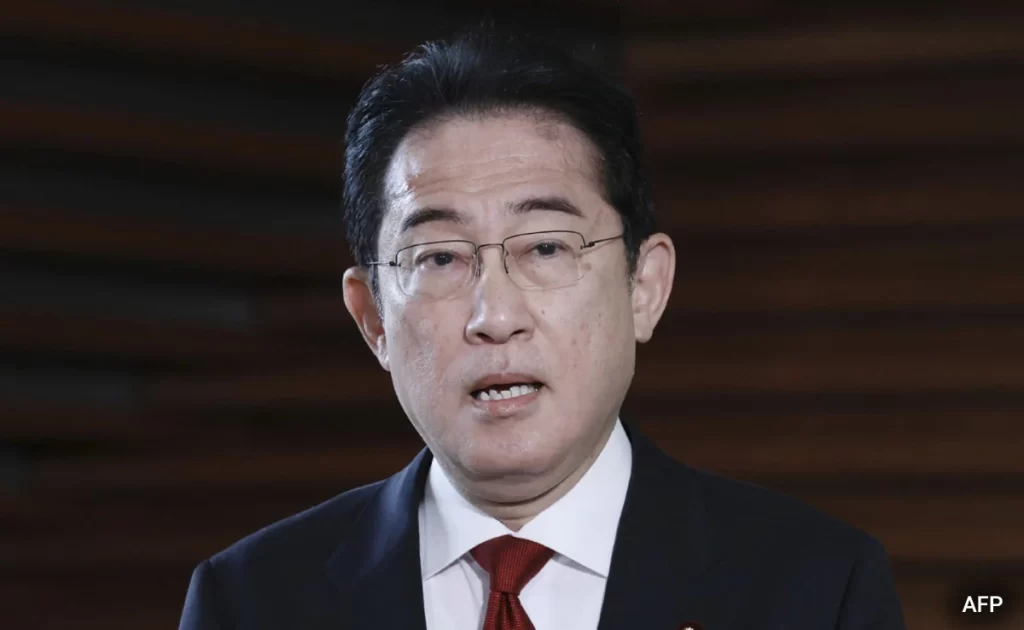Japan’s Prime Minister Fumio Kishida was unharmed after a blast and white smoke filled the air during a campaign rally on Saturday, according to local media.
The incident in Wakayama occurred less than a year after the killing of former Prime Minister Shinzo Abe, which devastated the country and caused a security shake-up for public leaders.
Fumio Kishida was in the western city to deliver remarks in support of a ruling party candidate and had just completed sampling fish at a port when a commotion swept through the audience assembled to hear him speak.
NHK footage showed prime minister Fumio Kishida turned to look back as a person was seized by security and bystanders moved away some shrieking.
A blast was heard seconds later, and white smoke covered the air. And fortunately, Fumio Kishida was unhurt after the blast.
According to NHK, a guy was arrested at the site on suspicion of obstructing business.
Local police declined to comment on the incident, thus there was no quick official confirmation.
People at the scene described moments of panic.
“I ran frantically, and then, 10 or so seconds later, there was a loud sound and my kid started crying. I was stunned, my heart is still beating fast,” one woman told NHK.
A man at the scene told the broadcaster that “when we all stopped in front of the podium, someone started saying ‘culprit!’ or something, or ‘an explosive was thrown,’ so everyone started dispersing fast.”
“And then, about 10 seconds after the culprit was captured, there was a blast,” he said.
‘Unforgivable atrocity’
Reports said Kishida was unharmed and could still appear at campaign events scheduled for later in the day.
“That something like this happened in the middle of an election campaign that constitutes the foundation of democracy is regrettable. It’s an unforgivable atrocity,” Hiroshi Moriyama, the ruling Liberal Democratic Party’s election strategy chairman, told NHK.
In a country with little violent crime and tight gun regulations, security at local campaign events in Japan can be relatively relaxed.
However, following the assassination of Abe, who was shot and died while speaking at a campaign rally in July 2022, the country increased security around lawmakers.
His claimed assassin, Tetsuya Yamagami, allegedly targeted him because of his ties to the Unification Church, and the tragedy generated exposed the sect’s ties to Japanese government officials.
Yamagami was apparently upset with the sect because his mother made big donations to the group, which caused the family to go bankrupt.
Following Abe’s assassination, the chief of Japan’s National Police Agency resigned after an inquiry revealed “shortcomings” in the former leader’s protection.
The research lambasted a system in which local police were tasked with protecting visiting top officials.
It was determined that sections south of Abe’s podium were not effectively guarded, allowing the shooter to approach.
The investigation stated that “it is deemed highly probable that this incident could have been prevented” with sufficient protection.
The head of Nara’s local police also offered his tearful resignation after Abe‘s death.
The incident comes as Group of Seven climate and energy ministers meets in the northern city of Sapporo, and a day before G7 foreign ministers arrive in Karuizawa in Nagano for talks.
Japan will host the G7 leaders’ summit next month in Hiroshima.
Also read: Why Japan is angry about a state funeral for Shinzo Abe
